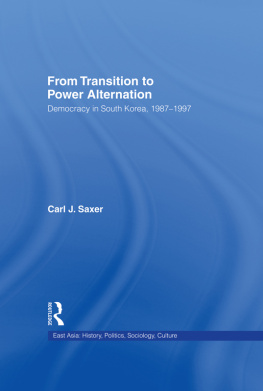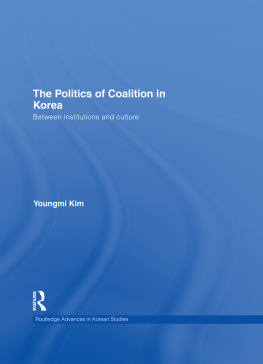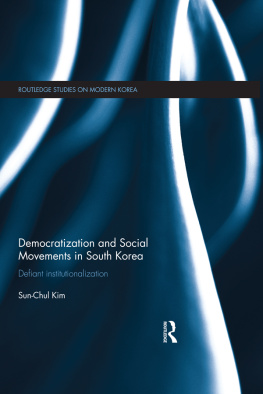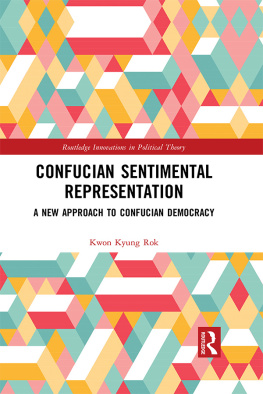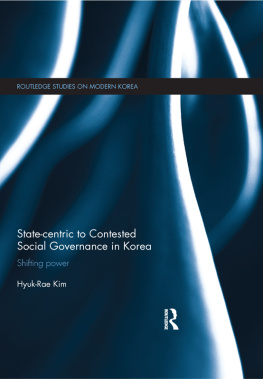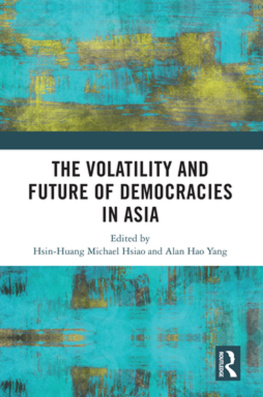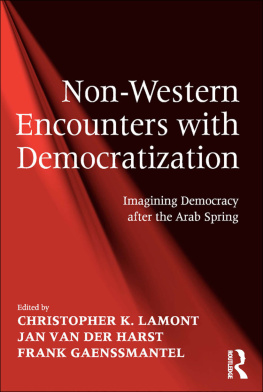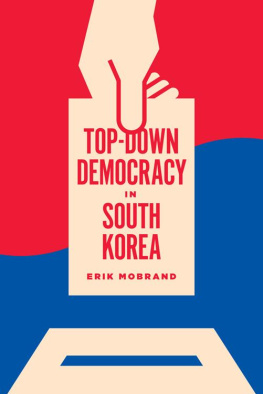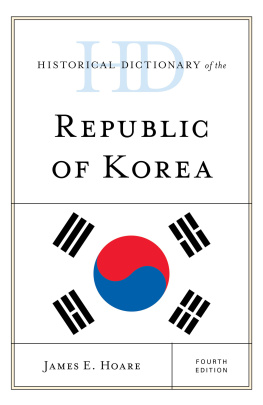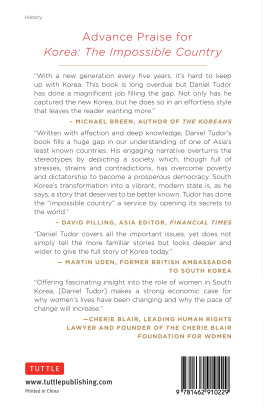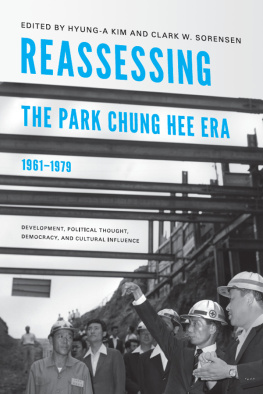DEMOCRACY AND AUTHORITY IN KOREA
NORDIC INSTITUTE OF ASIAN STUDIES
Democracy in Asia
recent titles
Indonesia and the Third Wave of Democratization
The Indonesian Pro-Democracy Movement in a Changing World
Anders Uhlin
The Cultural Construction of Politics in Asia
Hans Antlv and Tak-Wing Ngo (eds)
Democracy and Authority in Korea
The Cultural Dimension in Korean Politics
Geir Helgesen
Series Editor: Hans Antlv
Research Director, Democracy in East and Southeast Asia
programme, Gothenburg University, Sweden
The series will encourage not only traditional political studies but also more culturally sensitive treatments which improve our knowledge about local interpretations of democracy and political legitimacy. Studies of local political structures and political cultures and their operation within national processes, of new avenues of transnational interaction, and of the meeting between governments interpretation of democracy and local cultural and political realities, will also be encouraged. The series will contribute to the discussion about democracy, democratization and democratic alternatives in Asia, and provide a natural meeting place for scholars working in this field.
Nordic Institute of Asian Studies
Democracy in Asia Series, No. 3
First published in 1998 by Curzon Press
This edition published 2013 by Routledge
2 Park Square, Milton Park, Abingdon, Oxon OX14 4RN
711 Third Avenue, New York, NY 10017
Routledge is an imprint of the Taylor & Francis Group, an informa business
Typesetting by the Nordic Institute of Asian Studies
Copyright 1998 by Geir Helgesen
British Library Catalogue in Publication Data
A CIP catalogue record for this book
is available from the British Library
ISBN 0-7007-0613-5
Publication of this work was assisted by a grant from
the Danish Social Science Research Council
The following statements, though apparently contradictory, in general are also regarded as axiomatic.
All people are essentially alike and should be treated like fellow human beings.
Every individual is unique and must be treated as such by other people.
Nobody is totally independent but is a member of, and dependent on different groups.1
While these three sentences are seen as self-evident truths, they do not negate a fourth statement, namely that a society or country has its own characteristics. Any observer can tell a host of differences between people living in different parts of the world. Such characterizations often reflect prejudices rather than insights. Few people would deny, however, that some characteristics are more widespread in one part of the world compared to another. Such characteristics are often cultural attributes, historically developed and imbued in people by means of socialization, education and daily life experiences. How people relate to life to themselves as well as to others is only partly an individual affair, and even that part gains meaning from the cultural context. It is the fourth statement, concerning the influence of culture on politics, and to some extent the other way around as well, that is the theme of this book.
The cultural context is an ambiguous entity and can certainly be interpreted in different ways. It is nevertheless meaningful to talk about basic values and norms, generally accepted and shared by a majority in a population. It is, however, important to be aware of the specificities of different cultures when relating to the possible contribution or weakness of the political culture approach. In this study, I shall maintain that it is more relevant to talk about a political culture in Korea than it is in the USA and several other Western countries; the latter which are characterized by ideological individualism and a pluralistic world-view but not so Korea. Certainly, there are competing interpretations of what constitutes the ideal society in Korea but there are not totally different political cultures. Even political adversaries share a basic understanding of man and society. Therefore, strong and lasting sub-cultures challenging the political order inside South Korea (or North Korea for that matter) are, if not absolutely non-existent, then of minimal size and thus of negligible importance.
The relationship between culture and politics is not a determinist one; by no means is the cultural context the sole influence on the political scene. Neither is it a unidirectional relationship; politics also effects culture (for instance, through political socialization in the educational system, and through other ways and means, political authorities encourage values, norms and ideas conducive to their ideals and not least their needs). But if one tries to understand political phenomena for instance, a political style or the relationship between leaders and followers then this style and this relationship must be related to the relevant cultural context. It is not meaningful to appraise political rituals in one culture by the standards adhered to in another and yet, this is exactly what happens in contemporary international politics. Western powers especially have apparently decided to forget the past, declare their own truths universal, and spread their gospel on a global scale. In Asia, on the other hand, a growing number of political leaders and intellectuals have increasingly sought to gainsay this alleged universalism. Whatever ones position in this controversy, the debate itself is undeniably a matter of growing importance.
Close to the end of the twentieth century, which more than any earlier epoch has been characterized by ideological conflicts and ideologically rationalized wars, cultural differences now seem to occupy the place of ideology. Samuel P. Huntington made a significant contribution to this debate with his article The Clash of Civilizations (1993); a debate that has since concentrated on attacks on, or support for, Huntingtons perspective; on his theoretical approach or ideological leaning; his historical perspective (or its absence); his understanding of the concepts culture and civilization (or lack thereof), etc. However, very little has been done to verify or refute his perspective by conducting empirical research on links between culture and politics. The present study is a modest contribution to this end as it examines the destiny of Western democracy in an East Asian political culture. This book is indebted more to Lucian W. Pye than to Huntington (and as much to Hahm Pyong-choon, who was among the first Korean scholars advocating the political culture approach as a useful tool to understand Korean politics). None the less, it was Huntington, who presented the perspective when the time was ripe, affecting both the academic discourse, the mass media debates and not least international relations proper.
The perspective in this study is necessarily cross-cultural: Korea is observed by a non-Korean, through the looking-glass of another culture so to speak, but with the stated aim of trying to be aware of and even utilize this fact. The cross-cultural perspective obviously has its weak points; sometimes one sees the world less as


